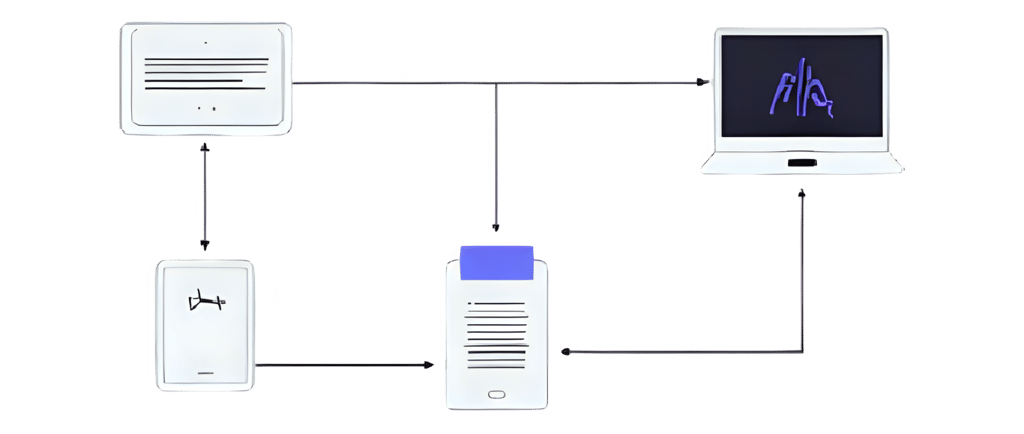Why Intelligent Agents Work Best for Businesses with Good Processes, not Just Any Business
Discover why intelligent agents only deliver ROI when your business processes are solid, and how to prepare your workflows for AI success.
AI IMPLEMENTATION & STRATEGY
8/7/20253 min read


Introduction
There’s never been more buzz about intelligent agents. From news headlines to networking events, these advanced AI tools are promised as the shortcut to productivity, better customer service, and profit. It’s tempting to think you can plug in an agent and watch your business run itself.
But here’s an expert insight: intelligent agents only deliver extraordinary results if your team already has clear, repeatable processes in place. If your operations are chaotic, even the world’s best agent will just automate confusion. In this guide, let’s go deeper into why process is everything, and how to prepare your business so AI actually frees your time instead of multiplying your headaches.
What is an Intelligent Agent, Really?
Unlike traditional bots that just answer simple questions, intelligent agents can:
Interpret instructions, context, and intent
Handle multi-step tasks (like managing invoices, sending reminders, or escalating support tickets)
Learn from your data and interactions to get better over time
Connect with other apps (CRMs, calendars, project management, inventory) to act across your entire tech stack
But, here’s the catch: They follow what you teach them. Bad instructions or unclear workflows produce unreliable results.
Why Smart Processes Are the Key to AI Success
1. Clarity Multiplies Impact
Imagine a customer support process where every team member handles complaints differently. Sometimes responding in minutes, sometimes in days, occasionally following up, often not. If you automate that chaos, all you get is faster inconsistency.
Now picture customer support with a step-by-step process: intake, acknowledgment, resolution, and follow-up. An agent can easily be trained to handle most of these steps, work 24/7, and only escalate true exceptions to your team, delivering consistent, high-quality experiences every time.
2. You Save Money on Setup and Troubleshooting
Customizing an AI agent takes time and money, but if your business steps are clearly mapped, onboarding is quick. With messy, undocumented processes? Expect a long (and expensive) trial-and-error phase troubleshooting failures.
3. Your Team Trusts the Results
If employees know what good performance looks like (“Agent must send receipts after every sale, escalate negative reviews within 2 hours”), it’s easy to trust the AI. Otherwise, confusion leads to low adoption and wasted spend.
The “Agent-Ready” Business: A Deep-Dive Checklist
To get maximum value from intelligent agents, honestly assess these questions:
Are your core workflows (sales, support, fulfillment, billing) mapped out? On paper or digitally?
Does your team follow the process, or does every member “wing it”?
Are there clear decision points (e.g., when to escalate, when to close a ticket)?
Can you describe the process in plain language to someone new?
Do you have supporting materials (templates, scripts, FAQs) that an agent could use?
Score yourself: If you answer “yes” to most, you’re ready. If not, invest a bit of time in process documentation. It will pay for itself ten times over in successful automation.
Expert Steps For Preparing Your Process for Agent Automation
1. Select a Stable, High-Impact Workflow
Start with an area of your business that works well, but would benefit from faster, more reliable execution (e.g., appointment scheduling, invoice generation, basic support tickets).
2. Map Out Every Step
Write down (or record video of) exactly how your process works from start to finish. Include edge cases (what happens when a customer doesn’t reply? How do you handle refunds?).
3. Simplify and Eliminate Ambiguity
Standardize language and expectations. If two team members do it differently, pick the best method.
4. Pilot with a Human First
Have someone unfamiliar with the process try to complete the workflow using only your documentation. If they get lost, so will your AI agent.
5. Choose the Right Intelligent Agent Software
Now select an AI agent that connects to your stack. Look for those allowing custom triggers, approval steps, and easy data integration.
6. Monitor, Measure, and Iterate
Launch the agent on real tasks. Track time saved, error rates, and employee feedback. Tweak the process or agent configuration as needed.
Case Example: From Messy Support to Agent-Powered Excellence
A small ecommerce brand used to answer all support emails ad hoc. No SLA, no templates, no tracking. When they tried an AI agent, response times got faster… but customers got inconsistent answers and more follow-ups were missed.
They stepped back, mapped a simple process (“Acknowledge in 2hr, offer solutions from template, escalate if not resolved in 1 reply”), built clear scripts, and then re-trained the intelligent agent. This resulted in more positive reviews, 90% fewer manager escalations, and the owner reclaimed 7 hours per week.
Conclusion
Intelligent agents handle the how, not the what or why. If you give them great playbooks, they’ll supercharge your business. If you try to automate a free-for-all, they can make the mess bigger. Invest in your process, then let agents multiply your results.
